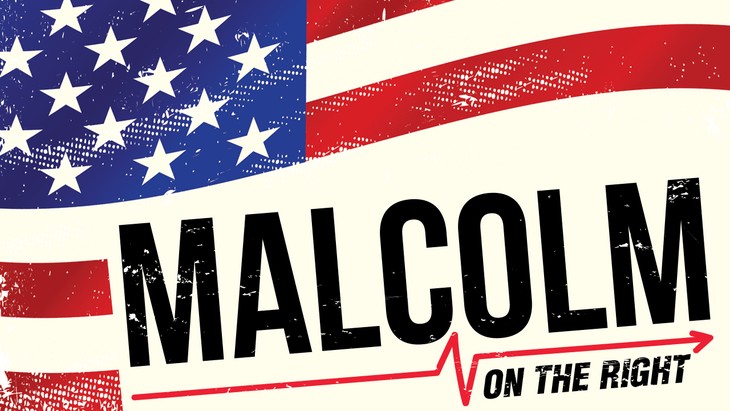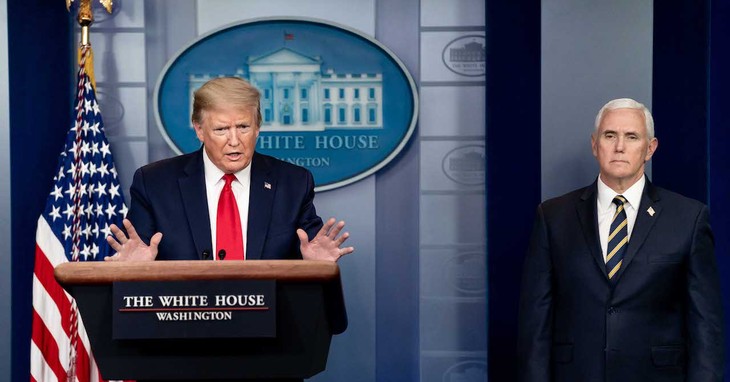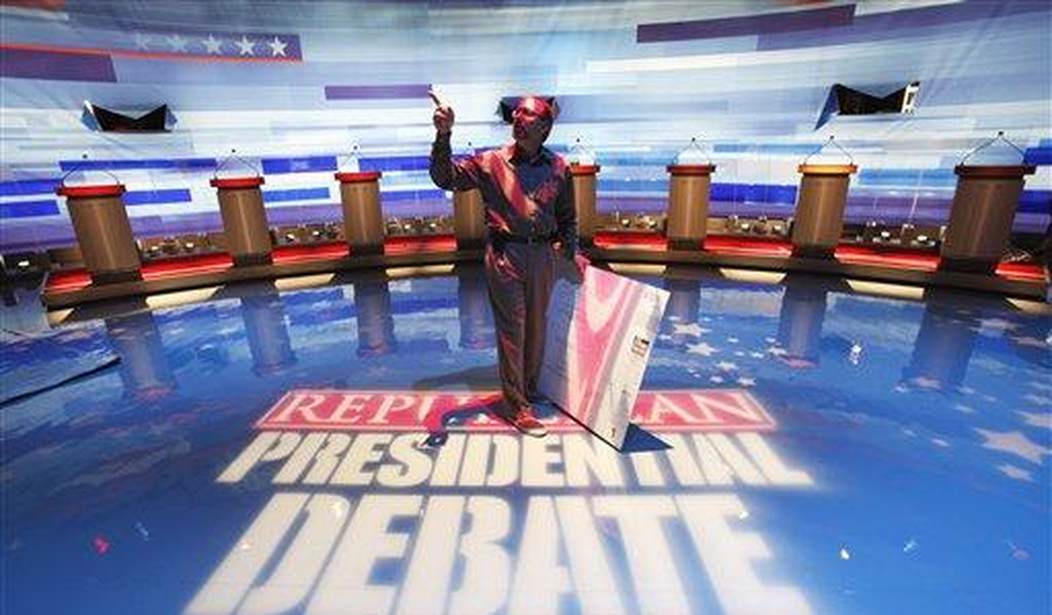Everybody’s talking about who’s going to win the Republican nomination for president next year.
Polls and hunches, hubris and political history come together for countless prescient predictions by all-knowing Eastern pundits who land in Des Moines to cover the caucuses and expect to find a taxi to the Marriott.
They knew so much about the Heartland, having flown over it so often, that none of them thought Donald Trump could win in 2016.
There were 17 Republican wannabes that cycle, almost all of them wise and worldly in the ways that U.S. politics had operated for decades.
Eight years ago this week one of those 17 took an elevator, then escalator downstairs from his Fifth Avenue penthouse to mark his birthday by announcing an obviously hopeless campaign for the White House.
He was a rookie politician; not many of those win the U.S. presidency on their first political try, mostly victorious generals.
Only one of those 17 took the time to listen, really listen, to the anger and frustration with Washington in the hearts and heads of the Heartland. And then to speak of it with anger and vehemence, fervor, and promises he kept.
He won on that Nov. 8. The “deplorables” shattered Hillary Clinton’s composure so badly, that she couldn’t concede til the next day.
And despite all the resulting turmoil, hyperbolic outbursts, the phony scandals of the ensuing four years and, yes, perhaps some growing doubts these days, many of those deplorables will vote for Donald Trump again this time.
Everyone’s an expert on winners this far out from Election Day, knowing full well that come the withering humidity of mid-July next year in Milwaukee, not a single living soul will remember a word they wrote or uttered this month. Except for these, of course.
So, let’s talk for a change about some of the losers in this cycle’s field of 12 right now. A lot can change before the mid-winter Iowa caucuses. Someone could stage a run. But not everyone.
Front-runners like to think and act as if their victory is preordained. So much so that they can fool themselves. That’s why Hillary Clinton and too many of her supporters were so devastated by Trump’s unexpected win that they’ve been plotting revenge ever since.

Let’s be honest here. The only thing that’s certain about the current GOP field is that at least 11 of them will be losers. Some of them already have a pretty good head start for that spot.
As always, they come to their campaign with a variety of motives. Ambition. Ego. Delusion. Building name recognition. Positioning for future bids or a cabinet or VP spot. I once asked Alan Keyes (remember him from 2000?) why he was running in GOP primaries. He said he could hike his speaking fees after.
Republicans do have a habit of nominating second-place, primary finishers the next time. See Ronald Reagan 1976-1980, George H.W. Bush 1980-1988, John McCain 2000-2008, Mitt Romney 2008-2012.
Chris Christie, who turns 61 this year, said he would not run for president again unless he saw a clear path to the nomination. Apparently, he has better eyesight than everyone else.
The two-term, blunt-speaking New Jersey governor and on-again-off-again Trump supporter finished 10th in the 2016 Iowa caucus and sixth in the New Hampshire primary despite 100 townhalls. I can’t see Christie without thinking of Tony Soprano, whose show ended after seven years, the same length of time since Christie’s campaign collapsed.
Based on that lackluster 2016 showing, Christie’s trying again, focused on a big showing in New Hampshire, where independents can vote in GOP primaries.
He helped Trump prep for the 2020 debates, but has been a frequent Trump critic in his part-time job as “analyst” on ABC’s “This Week.”
Christie turned harsh on Trump after the Jan. 6 incident. He cautioned:
Beware of the leader who has never made a mistake, who has never done anything wrong, when something goes wrong it’s someone else’s fault and who has never lost. I’ve lost….A lonely, self-consumed, self-serving mirror hog is not a leader.
I‘ve lived in New Jersey. A Republican doesn’t win two terms there without having a broad appeal. Christie’s a skilled debater who doesn’t mince words. Ask Marco Rubio. Christie’s self-appointed role will be to disable Trump, which no one has yet.
Christie has said:
You need to think about who’s got the skill to do that and who’s got the guts to do it because it’s not going to end nicely no matter what.
Ron DeSantis aside, the other Republicans have hesitated to go straight at Trump for fear of alienating his hardcore loyalists, who are a party minority but more than anyone else has at the moment. So, they won’t mind the tack of Christie, who’s got nothing to lose politically.
Unlike Christie, Mike Pence has a strong party reputation, a clear Midwestern ethos, and a political base among evangelicals. So, he’s aiming at making a big splash in the Iowa caucuses, his main hope.

VP Pence going up against his one-time running mate is surely unprecedented in U.S. politics. He just turned 64 and is one of the best-prepared presidential candidates since George H.W. Bush.
He was a six-term House member from Indiana and a governor who dropped a reelection bid to become vice president.
There, Pence was stoutly loyal – until Jan. 6, 2021, when he rejected Trump’s pleas to deny certification and overturn the 2020 election. That, uh, displeased Trump and, thus, his troops, who will never forget.
“Trump asked me to choose him or the Constitution,” Pence said in his launch. “I chose the Constitution.”
Pence would likely be a studious and judicious president. He once described his Indiana radio talk show as “Rush Limbaugh on decaf.”
That tone would no doubt be welcome to many general election voters in this angry age pocked with the uncertainty of an addled president who needs help exiting a stage and written answers to allegedly spontaneous media questions.
But a calm, controlled demeanor doesn’t match the temperament of Pence’s first hurdle, today’s wronged GOP electorate likely more energized by the rhetorical fisticuffs of DeSantis and Trump.
In a way, the same holds true for Tim Scott, an accomplished, 57-year-old speaker with an inspiring Horatio Alger story and a strong pride in his country.
He’s an excellent communicator with crowds and individuals and fearless in taking his case to the baiters on “The View.”
At this point, he’d be an excellent VP partner who would absolutely destroy Kamala Harris in their debate. But Scott’s sunny disposition and legislative work on criminal justice reform are not as exciting as populist party voters seem to prefer these days.
The steel of former South Carolina governor, Nikki Haley, who appointed Scott to the Senate, has been underestimated by many in her political career.
But not during her forthright time as UN ambassador when she stood up to the Russians and. a couple of times, Trump himself. The 51-year-old daughter of Indian immigrants is one of the most personable politicians I’ve ever met.
Like Scott, she experienced racism firsthand and speaks eloquently of that. Her husband, Michael, is an Army major who served in Afghanistan and soon deploys for a year in Africa.
You’ve no doubt not heard of Doug Burgum. He’s the popular two-term governor of North Dakota who founded a software company in the middle of nowhere and sold it to Microsoft for $1.1 billion.
A no-nonsense kind of guy, he grew up in a small town where, he says, “’Woke was what you did at 5:00 a.m. to start the work day.”
With zero name recognition, Burgum won’t win the GOP nomination in 2024. But you’re likely to hear more of him in the future.
Republican voters like successful businessmen as executives. See Florida’s Rick Scott, who was governor, now senator, and Montana’s Greg Gianforte, who was a House member before governor.
The current question for these candidates in growing their support is the criteria to qualify for national exposure in the party’s first primary debate Aug. 23 in Milwaukee on FoxNews.
Candidates must pledge to support the party’s eventual nominee and have 40,000 unique donors with at least 200 donors in a minimum of 20 states and territories.
They must also have at least a one percent standing in polls recognized by the Republican National Committee. Requirements would escalate for later debates.
Trump vowed Saturday to stay in the White House race even if convicted. He acts as if his legal indictments don’t matter. So far, they haven’t among his supporters. He says he’s considering skipping that opening debate and possibly others like the second one at the Reagan Presidential Library.
Trump says he’s so far ahead in polling and fundraising it’s not worth his time and he resents never being invited to speak at that library while other Republicans have.
Trump posted on social media:
When you’re leading by seemingly insurmountable numbers, and you have hostile Networks with angry, TRUMP & MAGA hating anchors asking the ‘questions,’ why subject yourself to being libeled and abused?
Trump has skipped a previous debate, but it’s a dangerous move this cycle. It leaves more time for his competitors to lob charges unanswered. And even committed voters want to see their candidate strive for support.














